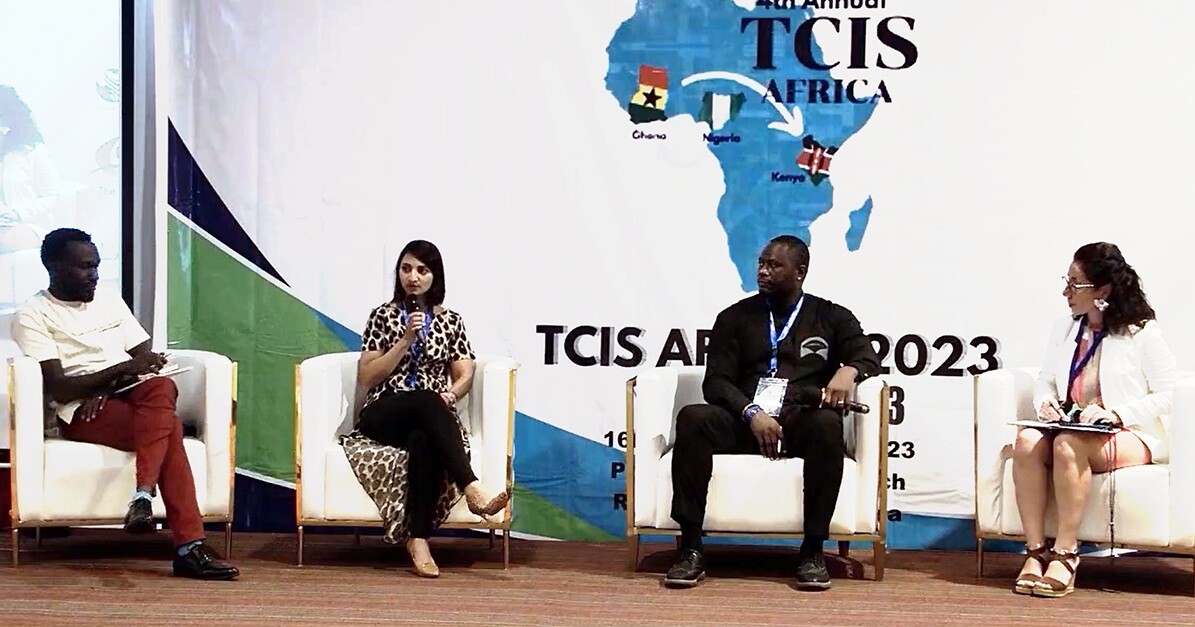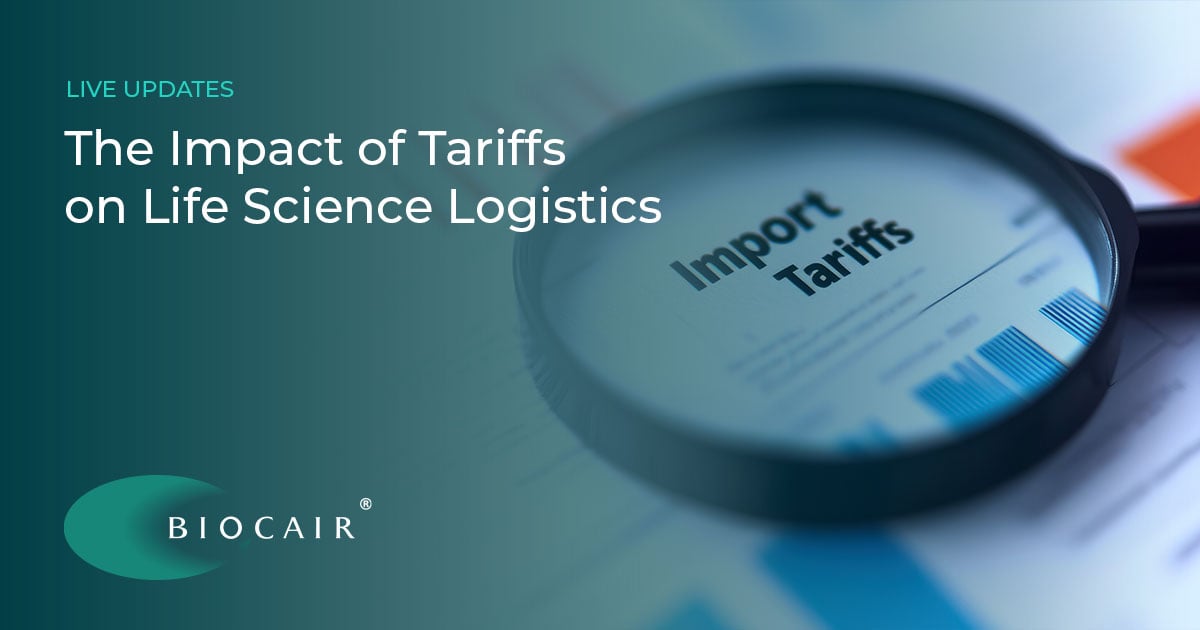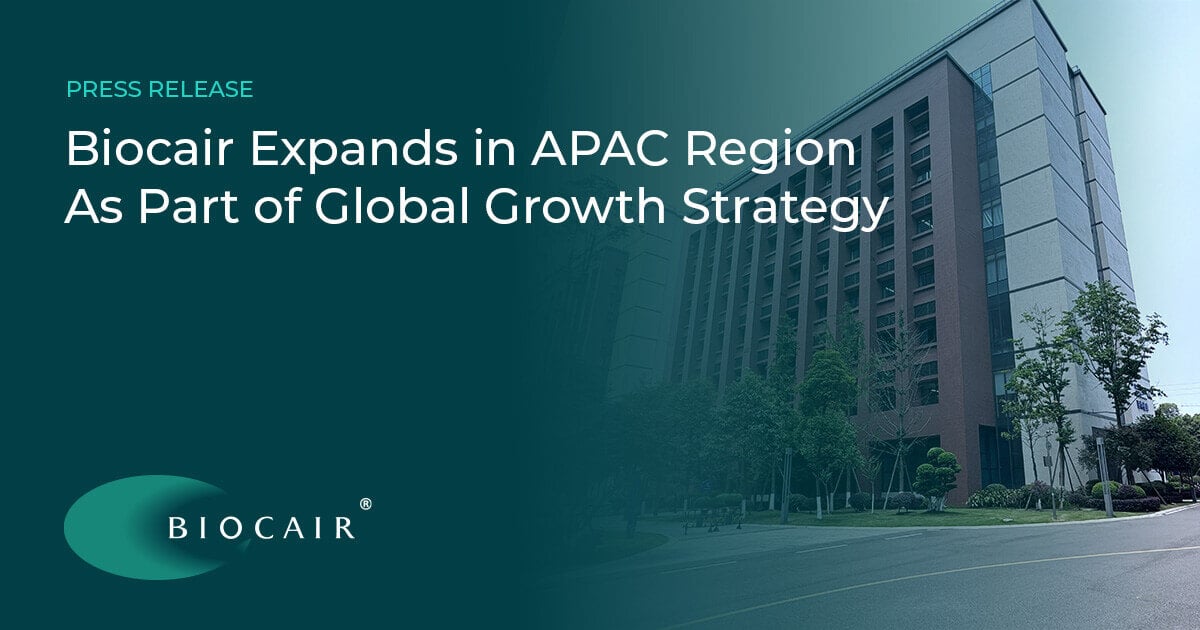The successful future of logistics in life sciences can only be secured if the right components are in place, according to experts at Biocair – a leading GDP logistics specialist within the pharmaceutical, biotechnology and life sciences sectors.
During an insightful panel discussion at TCIS Africa 2023, Business Development Manager at Biocair, Ellisha Maharaj, discussed the importance of having life science specialists in logistics roles, the need for auditing logistics providers and the importance of having Standard Operating Procedures (SOPs) in place.
Biocair aims to be the most trusted and reliable pharmaceutical, biotech and life science logistics provider. The business has delivered excellence in this sector for over 35 years. Most recently, the company has invested in cell and gene therapy logistics by introducing a team of dedicated specialists to deliver 24-hour global support.
Cell and gene therapy offers patients the complete personalization of medicine and is a revolutionary way to fight disease. These time sensitive and life-changing medicines need logistics solutions as innovative as they are, prompting Biocair to share its expertise and viewpoints on best-in-class life science logistics.
At TCIS Africa in Kenya, Ms. Maharaj challenged those attending from the clinical trials and health research sectors to take responsibility for managing vendors correctly with the aim of ensuring the delivery of quality service provision. She stressed this should be part of the due diligence process, such as ensuring the correct vendors are selected and the overall management of each.
The due diligence process should include focusing on areas of accreditation, such as ISO standards, GCP guidelines, the need for documentation and SOPs. Specifically in logistics, this means the requirement of having a life science specialist within logistics roles. And it is key to ensure that if provision has been made, it does not necessarily mean they are the best solution – in some instances, such as in resource limited countries, they are the only solution.
Biocair believes that not having a life science specialist in logistics roles is a real concern. By having a specialist in place, robust solutions for clinical trial shipments, performing to auditable quality standards and qualifying what service provision is, will be achieved.
Commenting on how this should be performed, Ms. Maharaj said:
“Specialists should not be afraid to ask key questions about SOPs and training. They need to confirm what the roles and responsibilities of service providers are, and how they can fulfil and deliver on the supply chain responsibility for clinical trials.
This is paramount to ensuring the success and conduct of clinical trials. Without robust supply chain management plans and good vendor oversight such as SOPs, we are doing our clinical trials an injustice by not making sure that we are attending to some of those key areas which may directly impact data outcomes.”
During the roundtable session, Ms. Maharaj referred to one of the developments currently underway for customs in Africa which is the development of a framework structure looking at the customs regulations in each country across the region, including South Africa.
For instance, the supply of dry ice in some African countries has been a huge issue. Although it is possible to provision, there are countries where it is more expensive to manufacture, resulting in increased dry ice placement costs which need to be budgeted for upfront.
Biocair is one specialist logistics provider that can provide this extra level of support. It can deliver local knowledge around costs as it has insights into the budget required for the supply of validated packaging and the length of time packaging will last. Further insights can also be given on the best solution for shipments, such as cost-effective routing and customs clearance procedures.
Biocair operates a ‘wheels up’ approach to global logistics, whereby before a shipment arrives in a country, the preclearance is provided to mitigate delays at customs. In addition, extensive cold chain and route planning need to be in place to manage possible temperature excursions using the correct, validated packaging.
Finally, on-site training with an in-country presence is vital in ensuring couriers understand what they are handling and what needs to be implemented if issues arise. This is vital if there is a spill which may impact safety, particularly related to biologicals classified as infectious or hazardous.
For more information, contact your local Biocair office.



